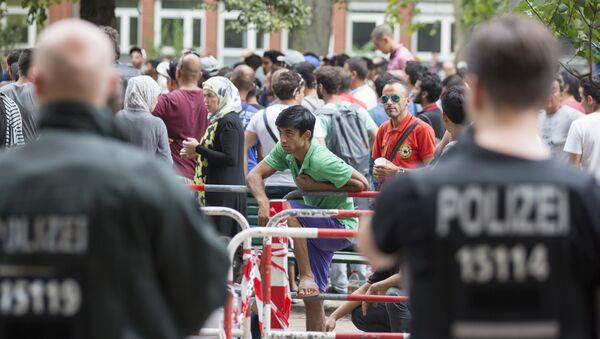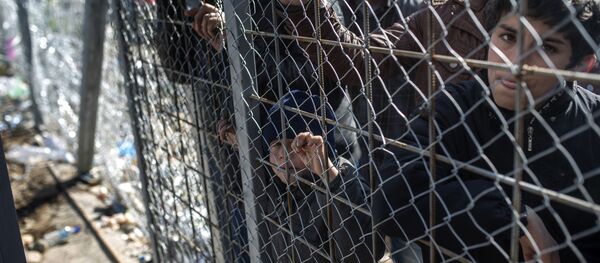Ipsos MORI is one of the leading market research companies in the UK and Ireland.
The survey also showed as far as the closure of the borders to new refugees is concerned, the Germans were echoed by respondents in Sweden (44 percent), Poland (40 percent), France (45 percent) and Italy (48 percent). In Turkey and Hungary, 64 percent and 55 percent, respectively, advocated closing the borders.
Although the measure is not supported by the majority of Germans, at least 71 percent of respondents fear that terrorists could enter Germany claiming to be asylum seekers, according to the poll.
Importantly, the survey was conducted ahead of the terrorist attacks in Nice, France and the German cities of Wurzburg and Ansbach in July.
It's important to note that Turkey, which had a population of almost 75 million in 2013, has already taken in 2.7 million refugees according to the UN. Russia, meanwhile, has preferred to accommodate Russian-speaking asylum-seekers fleeing war-torn eastern Ukraine; at one point, over a million Ukrainian citizens were living in Russia but many have returned.
As for the integration of refugees, 38 percent of Germans are optimistic about the matter, while 51 percent do not believe integration is possible.
Meanwhile, Dr. Robert Grim, head of Ipsos's Political and Social Research Department, warned of the serious political implications of Europeans remaining at loggerheads over the issue of refugees.
"The treatment of asylum seekers, the willingness to accept them, and the social integration of refugees into European society will dominate political debates ahead of the elections to the Bundestag in 2017," he was quoted by Die Welt as saying.
A total of 16,040 respondents took part in the survey, which was conducted between June 24 and July 8.
In an interview with Sputnik in May, Professor Philippe de Bruycker also warned that members of the European Union could choose to prevent migrants from the Middle East and North Africa from entering their borders if the refugee agreement between Brussels and Ankara falls through.
"If the deal with Turkey collapses, I am afraid that the only alternative that some [European] governments have in mind is really to close the border of the European Union to the refugees," De Bruycker, an expert on European asylum law at the European University Institute's Migration Policy Centre, asserted.
On July 18, 17-year-old refugee Riaz Khan Ahmadzai, who claimed to be from Afghanistan, attacked train passengers in Wurzburg, Bavaria, with an axe and knife. At least five people were seriously injured in the incident.
On July 24, Mohammed Daleel, a 27-year-old asylum seeker from Syria, carried out a suicide bombing outside a music festival in Ansbach, Bavaria; he was refused entrance to the festival itself because he didn't have a ticket. The attack killed Daleel, and seriously injured 12 people.





